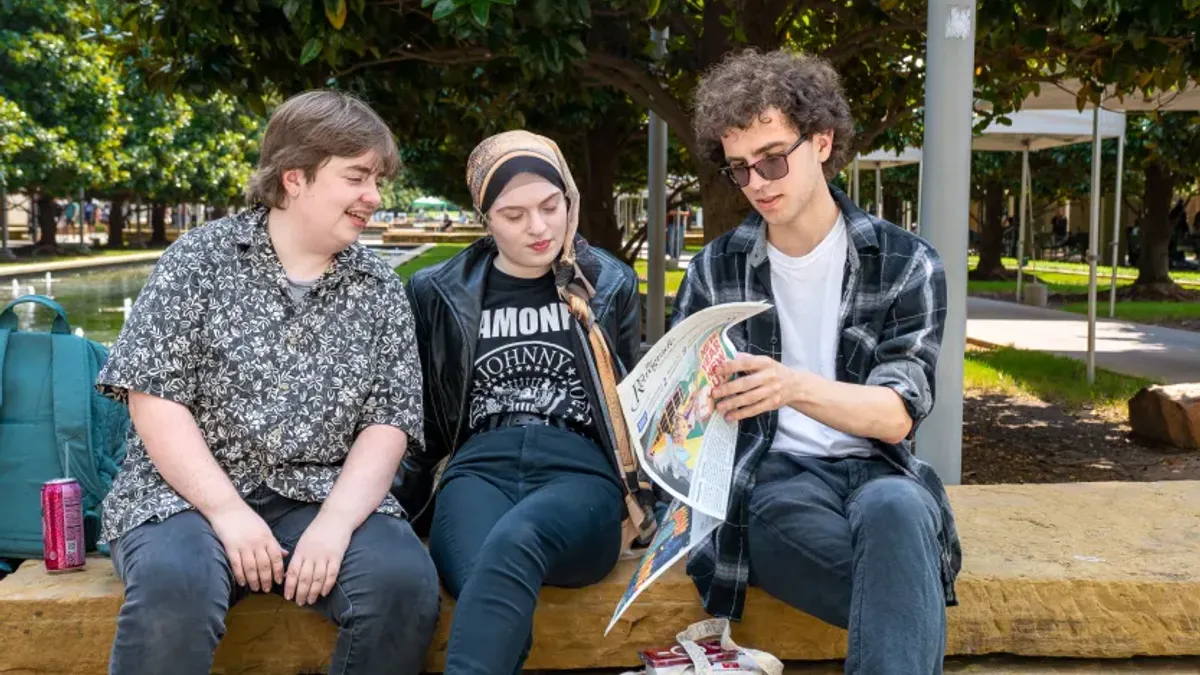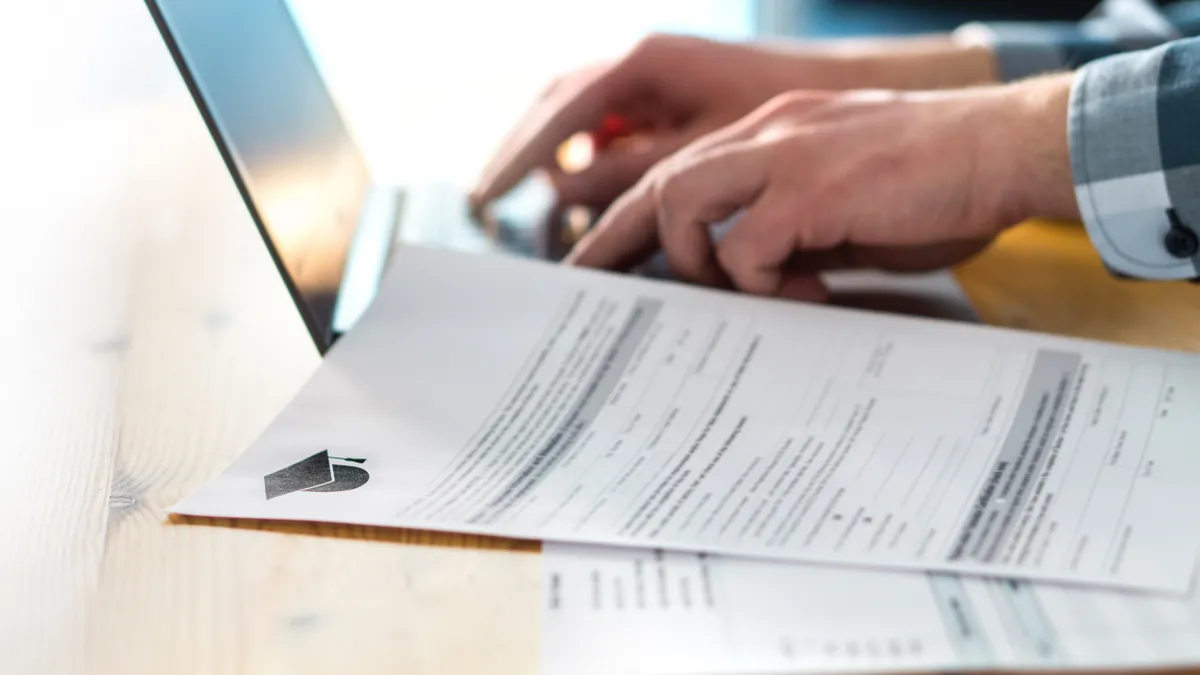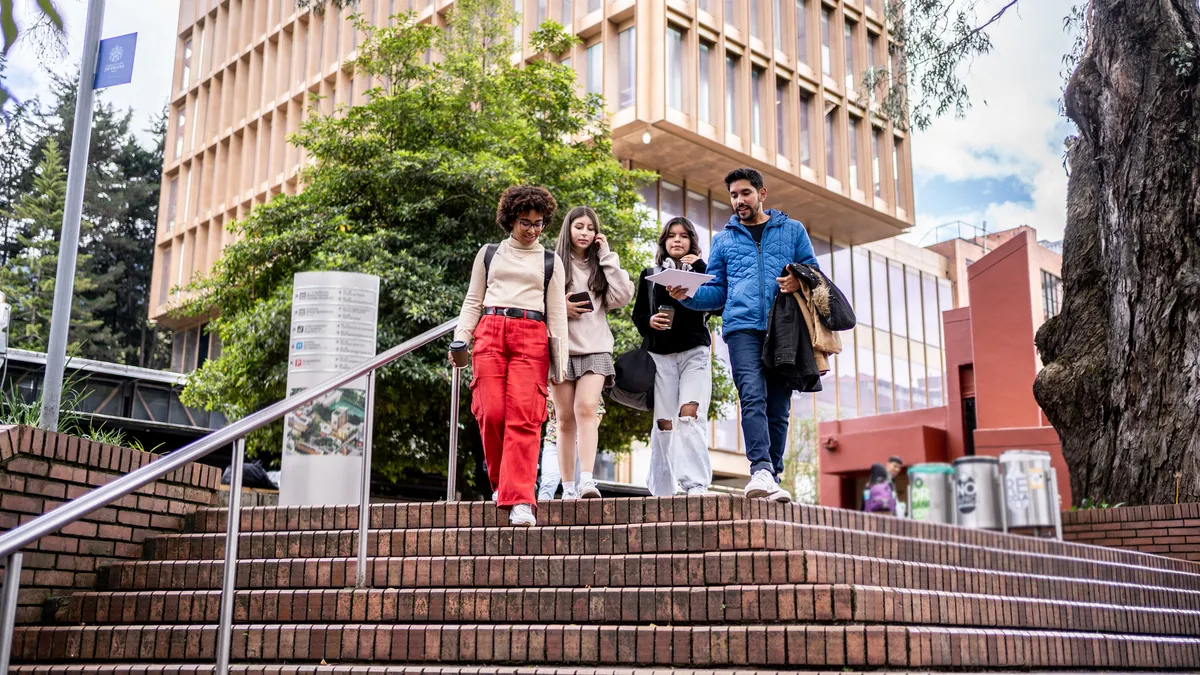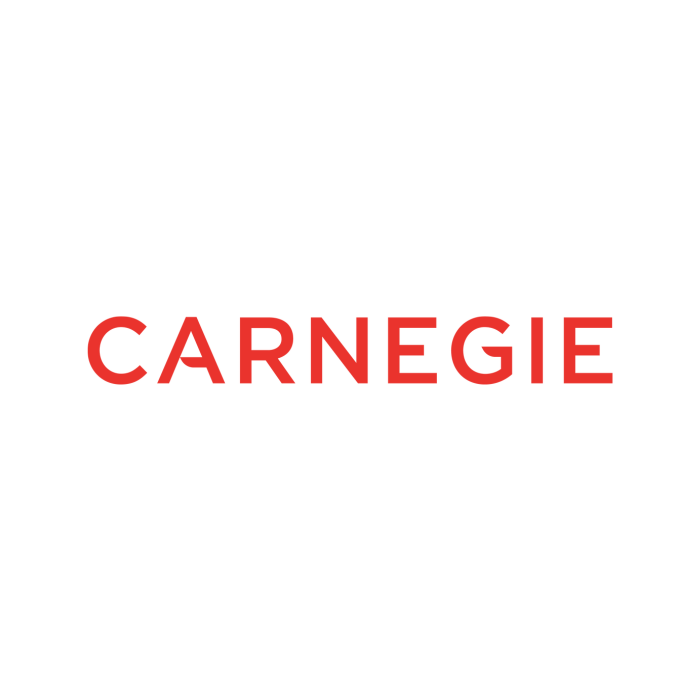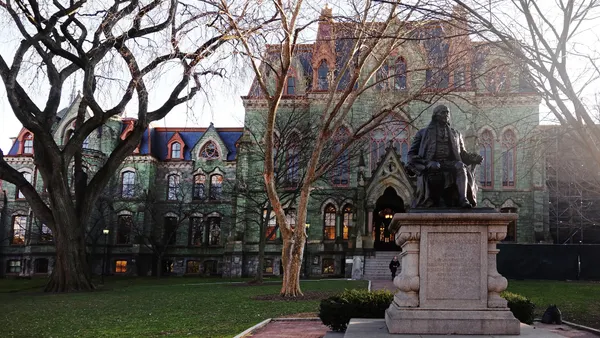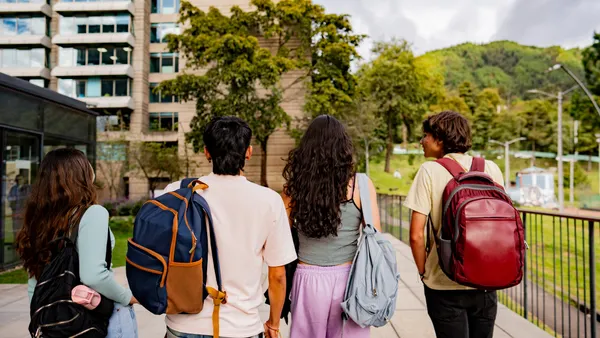Dive Brief:
- The Foundation for Individual Rights and Expression sued the University of Texas System on Wednesday on behalf of students over a new state law that directs public colleges to prohibit expressive activities on campus from 10 p.m. to 8 a.m.
- The lawsuit also takes aim at the statute’s provisions that prohibit inviting speakers to campus, using devices to amplify speech, or playing drums or other percussive instruments during the last two weeks of any term.
- FIRE called the provisions “blatantly unconstitutional,” arguing they violate First Amendment and due process rights on public colleges. The group is urging the judge overseeing the case to declare the prohibitions unconstitutional and to permanently block the UT System from enforcing them.
Dive Insight:
Texas state Sen. Brandon Creighton — who authored the bill and has been named the sole finalist for chancellor of the Texas Tech University System — has framed the legislation as a response to pro-Palestinian demonstrations campuses both within Texas and across the nation last year.
"While the world watched Columbia, Harvard and other campuses across the country taken hostage by pro-terrorist mobs last year, Texas stood firm. UT allowed protest, not anarchy," Creighton told Austin American-Statesman earlier this year after lawmakers passed his bill.
Police arrested dozens of demonstrators at the University of Texas at Austin in April last year after they erected a protest encampment. They likewise quickly dismantled a protest encampment at the University of Houston the following month.
In the new lawsuit, several student groups — including the independent student newspaper at the University of Texas at Dallas, an interdenominational student ministry, and libertarian organization Young Americans for Liberty — say the legislation blocks a broad array of protected speech.
That’s because the legislation defines expressive activities as “any speech or expressive conduct protected by the First Amendment to the United States Constitution.”
“Early morning prayer meetings on campus, for example, are now prohibited by law,” the lawsuit says. “Students best beware of donning a political t-shirt during the wrong hours. And they must think twice before inviting a pre-graduation speaker, holding a campus open-mic night to unwind before finals, or even discussing the wrong topic — or discussing almost anything — in their dorms after dark.”
Other activities covered by the 10-hour daily block on expressive activities include screening a film at midnight, “wearing a Halloween costume after 10 p.m.,” photographing the sunrise, setting up an information booth early on the morning of election day to boost voter awareness, or even saying, ‘Good morning,’ the lawsuit says.
The Retrograde, a student-run newspaper at UT-Dallas, voiced concerns that the ban covers their reporting and publishing deep into the night. Working in those hours is necessary for the students to fulfill their journalist mission, according to the lawsuit.
Similarly, the student ministry group, the Fellowship of Christian University Students’ chapter on UT-Dallas, often meet to discuss issues of faith — even after their official events conclude at 10 p.m.
“The First Amendment doesn’t set when the sun goes down,” FIRE senior supervising attorney JT Morris said in a statement Wednesday. “University students have expressive freedom whether it’s midnight or midday, and Texas can’t just legislate those constitutional protections out of existence.”
Along with the UT System’s board members and chancellor, the lawsuit also names the heads of UT-Austin and UT-Dallas as defendants.
The UT System said via email Thursday that it has not reviewed the lawsuit and declined to comment further. UT-Austin and UT-Dallas did not immediately respond to a request for comment.
The 10-hour daily block on expressive activities exempts commercial speech. According to the lawsuit, that means students would be banned from protesting world hunger at 7 a.m. but they would not be prevented from hosting a bake sale at that time.
That type of content-based restriction makes the law unconstitutional, the lawsuit argues.
The lawsuit also argues against the prohibitions on certain types of expressive activities — including inviting speakers or playing percussive instruments — during the last two weeks of any term. Those bans are overly broad, the lawsuit alleges.
UT-Austin, for instance, has seven academic terms, meaning bans on those expressive activities would cover 98 days of the year. At UT-Dallas, these bans would be in place for over 90 days, according to the lawsuit.


